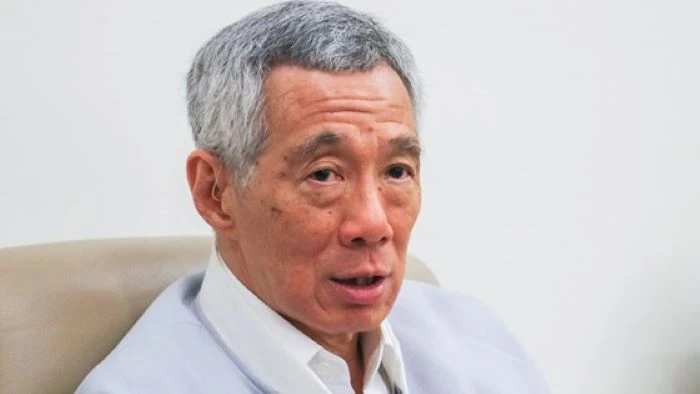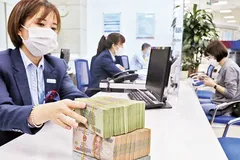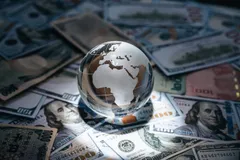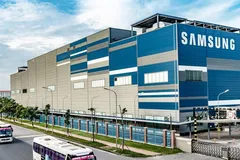
Lee was interviewed by the Nikkei Asian Review on Monday in Singapore ahead of his visit to Japan for the summit. Singapore is one of the invitees.
U.S. President Donald Trump and Chinese President Xi Jinping are expected to have a bilateral meeting there.
The trade spat between the world's two largest economies has damaged global business and consumer confidence, leading to a decline in trade and investment, and will eventually affect jobs, he said.
The prime minister noted that not resolving the dispute would lead to a bifurcation of technology, markets and trust. "That would be a structural thing, which will last for many decades," he said, adding that the consequences will be "even more serious than the financial crisis" a decade ago.
Lee said that to build trust, China and the U.S. "need to engage each other at the top level." He suggested that the two countries can start with easier issues, making incremental moves to build trust before moving to weightier matters. While Lee expressed hope that the Osaka meeting will be a starting point, he said, "I do not expect that they will be able to solve the problem in Osaka," adding that it will be "a long process."

Singapore has been promoting free trade through a number of initiatives such as the proposed Regional Comprehensive Economic Partnership. Last year, the group -- the 10 members of the Association of Southeast Asian Nations along with Japan, China, South Korea, India, Australia and New Zealand -- agreed to conclude the deal by the end of 2019. But this date remains uncertain as India has questioned some areas of the agreement.
"We hope to substantially conclude the RCEP negotiations this year," Lee said. "India will both gain and bring economic and strategic value in the RCEP. India must think about whether it is tenable to insist on movement of people as a red line in negotiations."
Lee stressed the importance of having India in the deal, saying that the concept of the RCEP is having all major economies in the western side of the Pacific. "If you leave out India, you are missing a very big piece."
As for Singapore's timeline for sealing the deal, Lee said, "I think if we miss this year substantially completing the RCEP will become progressively harder and it may risk losing momentum."
In the interview, Lee also noted that Singapore welcomes countries to join the Comprehensive and Progressive Trans-Pacific Partnership known as TPP-11, including China and the U.S. "China is presently not interested in joining ... but we hope that they will keep the possibility open, and they will review that position, and at some point consider joining the CPTPP."
On top of these two trade deals, Singapore, New Zealand and Chile started talks in May on the Digital Economy Partnership Agreement, which aims to address issues concerning the growing digital economy, such as artificial intelligence governance and e-payments.
The three are among four of the initial members of the now-defunct Trans-Pacific Partnership.
"We envisage DEPA as a pathfinder agreement to deepen cooperation, set new standards, and enable greater interoperability for trade in the digital economy," he said. "DEPA will have an inclusive architecture that welcomes other like-minded and digitally progressive partners like Japan to join."
Regarding the recent protests in Hong Kong, Lee said it is "a difficult situation" because "from the Chinese point of view, they will see it as a question of sovereignty. "We hope they overcome the difficulties and we wish Hong Kong well, as we do a lot of business with Hong Kong."
As for tensions in the South China Sea -- one of Asia's major security concerns -- Lee said that the area's code of conduct, scheduled to be concluded in about three years, should be "in accordance with international law."
When asked about China's military moves in the area, Lee said that all countries should avoid actions "which make the situation harder to solve."
Lee, 67, is the eldest son of Singapore's first prime minister, Lee Kuan Yew. He has been in office since 2004 and is also secretary-general of the country's ruling People's Action Party.
He said a new generation will come to power in Singapore "not too long after the next general election [which will take place by early 2021]."




















